Keir Starmer was confronted with Labour demands for wealth taxes today as he faced an end-of-term grilling by MPs.
The PM was pressed to target investment income and capital gains to fill an estimated £30billion hole in the public finances.
Former minister Liam Byrne suggested hammering those incomes could bring in enough to balance the books and fund a ‘big bold working class tax cut’.
Sir Keir dodged the question without ruling the move out, insisting decisions will be taken at the Budget in the Autumn.
The exchange at the cross-party Liaison Committee will fuel fears about looming tax pain, after the economy stallled and efforts to trim benefits spending were crushed by a Labour revolt.
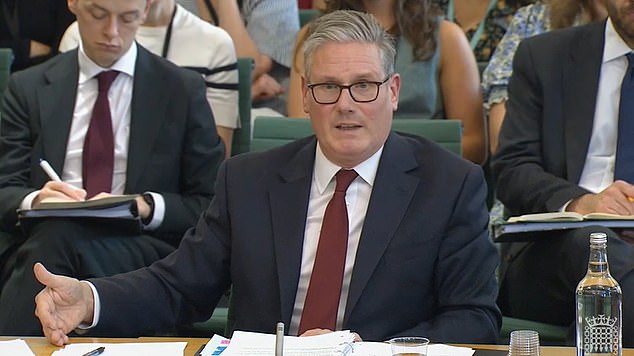
Keir Starmer was confronted with Labour demands for wealth taxes today as he faced an end-of-term grilling by MPs
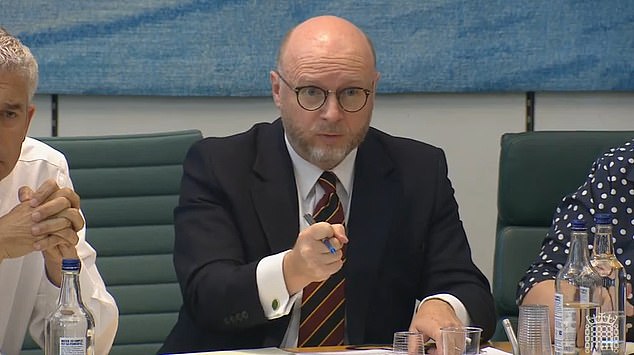
Former minister Liam Byrne suggested hammering those incomes could bring in enough to balance the books and fund a ‘big bold working class tax cut’
Mr Byrne asked: ‘If we taxed investment income in the way that we do work, if we tweaked up capital gains tax so it was fairer there would be enough money to deal with the fiscal pressures that we forecast and deliver a big bold working class tax cut just as they delivered in Australia.
‘Surely that should be an idea that remains on the table going into the Budget?’
Sir Keir replied: ‘I’m not going to be tempted to start speculating on what might or might not be in the Budget.’
Sir Keir listed measures aimed at easing cost-of-living pressures, including the increase in the minimum wage levels, but added: ‘The central focus has to be on creating more wealth and making sure that we have a growing and thriving economy.
‘That’s been the single biggest failure of the last 14 years, which is we haven’t had an economy that has grown in any significant way.’
Mr Byrne, chair of the Business and Trade Committee, quipped that he was pleased Sir Keir had not ruled out the tax hikes.
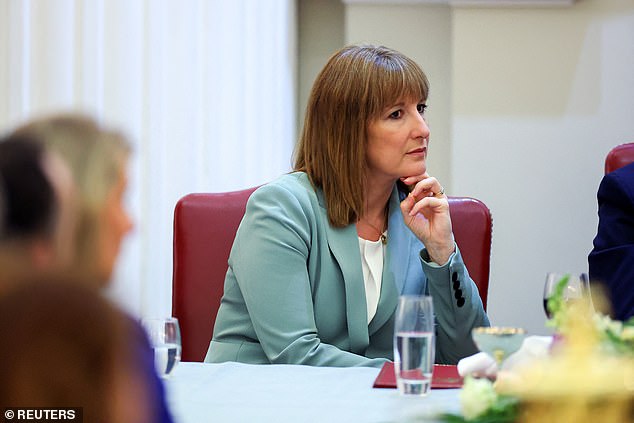
Chancellor Rachel Reeves is desperately hunting for options as she faces an estimated £30billion black hole in the public finances at the Autumn Budget
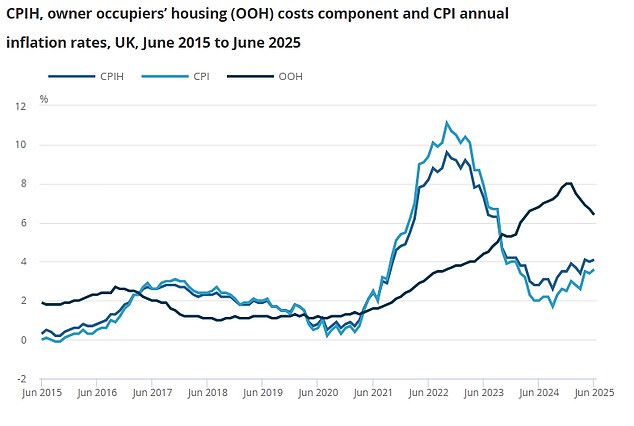
The CPI inflation rate had been expected to stay on hold at 3.4 per cent in the year to June, but instead increased to 3.6 per cent
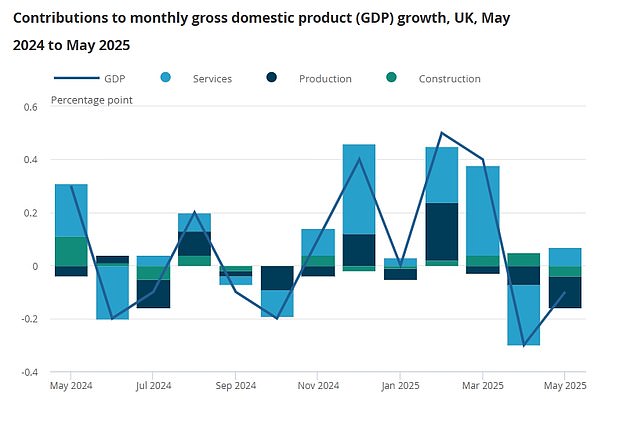
Recent figures showed the economy shrinking for a second month in a row
Sir Keir also came under fire from Work and Pensions Committee chair Debbie Abrahams, who was one of the ringleaders of the benefits rebellion.
Ms Abrahams challenged the premier to respond to disabled people who experienced ‘fear and anxiety’ before the Government agreed to gut its welfare Bill.
‘Well, it’s very important that they feel secure and supported, and that is at the heart of what we are doing in the changes we are making to welfare and related areas,’ the Prime Minister said.
Sir Keir said he did not accept that it would take several years before labour market changes allow more disabled people to be employed following Sir Charlie Mayfield’s review.
Ms Abrahams said she felt ‘ashamed’ of the ‘poor’ welfare legislation the Government put forward.
‘This was poor legislation. It was designed to save money for the Treasury by cutting support to sick and disabled people.
‘It was so far removed from Labour values of fairness and social justice, let alone compassion and common decency. I have to say I felt ashamed.’
In another tricky moment, Sir Keir was unable to say where extra housing to tackle rising levels of homelessness would come from.
The Liaison Committee put it to the Prime Minister that local councils looking to house homeless families were competing with the Home Office, which is looking to house asylum seekers.
Sir Keir replied: ‘I know, which is why I am so furious at the last government for leaving tens of thousands of asylum seekers unprocessed, with nowhere to live, other than accommodation paid for by the taxpayer.’
The PM insisted there was ‘lots of housing and many local authorities that can be used, and we’re identifying where it can be used’ when asked whether the Government was planning to take over accommodation to homeless families.
Pushed for specific examples, Sir Keir merely said he would write to the committee.
Labour’s wealth tax war is raging amid claims Rachel Reeves is set to reject demands for a charge on assets – but could hit pension reliefs instead.
The Chancellor is desperately hunting for options as she faces an estimated £30billion black hole in the public finances at the Autumn Budget.
She has been carefully avoiding ruling out a ‘wealth tax’ – with backbenchers pushing for 2 per cent levy on assets worth more than £10million.
However, she is thought to be privately opposed to the move, with tax experts and Cabinet ministers warning it would only drive away more wealth people from Britain.
A raid on pensions is still said to be on the table, with fears that the Treasury is again looking at slashing reliefs.
Currently higher-rate earners are spared 40 per cent tax on money that is put into retirement funds.
However, reducing the relief to the 20 per cent basic rate could raise around £15billion for the government.
The idea was rejected at the Budget last year, but Ms Reeves’ situation has dramatically worsened.
It would cause an outcry as cash in pension pots is already taxed when people draw incomes. The government is also facing mounting alarm that Brits are not saving enough into their pensions for comfortable retirement.
She is widely expected to extend the long-running freeze on tax thresholds to bring in billions of pounds more.
Capital gains could also be raided, as the Chancellor insists she will not hike rates of income tax, employee national insurance or VAT. She has also vowed a ‘cast-iron’ commitment to fiscal rules, with the UK’s debt mounting at risk of spiralling out of control.
A senior government source told The Times that a wealth tax on assets was ‘not going to happen’.
‘The problem is that if the Treasury start shooting down Kinnock’s proposal, they end up being boxed in,’ the source said.
‘It’s not going to happen, but they can’t say that publicly.’
The government’s woes have been deepening with inflation unexpectedly rising and signs the economy is slowing down.
Experts have warned that the stalling economy together with spending pressures could mean the Chancellor has a £31billion funding gap.
The tax burden is already set to hit a new high as a proportion of GDP after the last Budget imposed a £41billion increase – the biggest on record for a single package.
Many believe the Chancellor will opt to extend the long-running freeze on tax thresholds.
The policy, in place since 2022, is due to end in 2028-29. By that point it will have dragged an extra 4.2million people into the tax system as wages rise.











